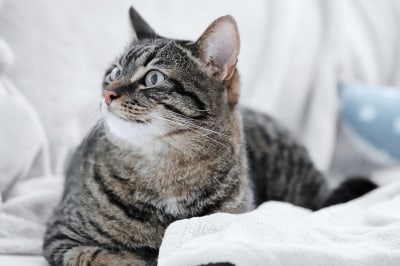
One of the most important parts of preventive care is diagnostics and testing against various conditions and diseases. At your pet's annual visit, they should have fecal testing done to ensure that there are no internal parasites. Annual fecal exams give your Oklahoma City vet the opportunity to screen for intestinal parasites that could cause complications for your pet if left untreated.
Fecal Exams for Your Pet
A fecal exam is a microscopic examination of your pet's feces, which is completed utilizing the diagnostics lab at your veterinarian's office. These annual fecal exams will help your vet to identify and treat any infections that could be compromising your pet's health, and even the health of members of your household.
What Can Be Seen During a Fecal Exam?
Your vet will look for any signs of parasites such as hookworms and roundworms when performing fecal exams. These parasites can make pets irritable and uncomfortable and could lead to many more serious issues. Several parasites may even be transmitted to people.
Intestinal parasites live in your pet's gastrointestinal tract, hiding them from view. This makes fecal exams the best option for detecting these parasites.
Should I Prepare my Pet For a Fecal Exam?
Get a fresh stool sample and bring it to your vet's office the same day, ideally within 4 to 6 hours for a better chance at precise results.
It's imperative not to allow the stool sample to dehydrate or dry out since many of the potential parasites will be killed, which can mask their presence.
How Often Should I Bring my Pet in for a Fecal Exam?
It is recommended that your pet have a fecal exam performed annually. Puppies and animals with gastrointestinal issues may need fecal exams more frequently. Your vet will be able to provide direction on how often your pet may require a fecal exam for their specific needs.
Note: The advice provided in this post is intended for informational purposes and does not constitute medical advice regarding pets. For an accurate diagnosis of your pet's condition, please make an appointment with your vet.



